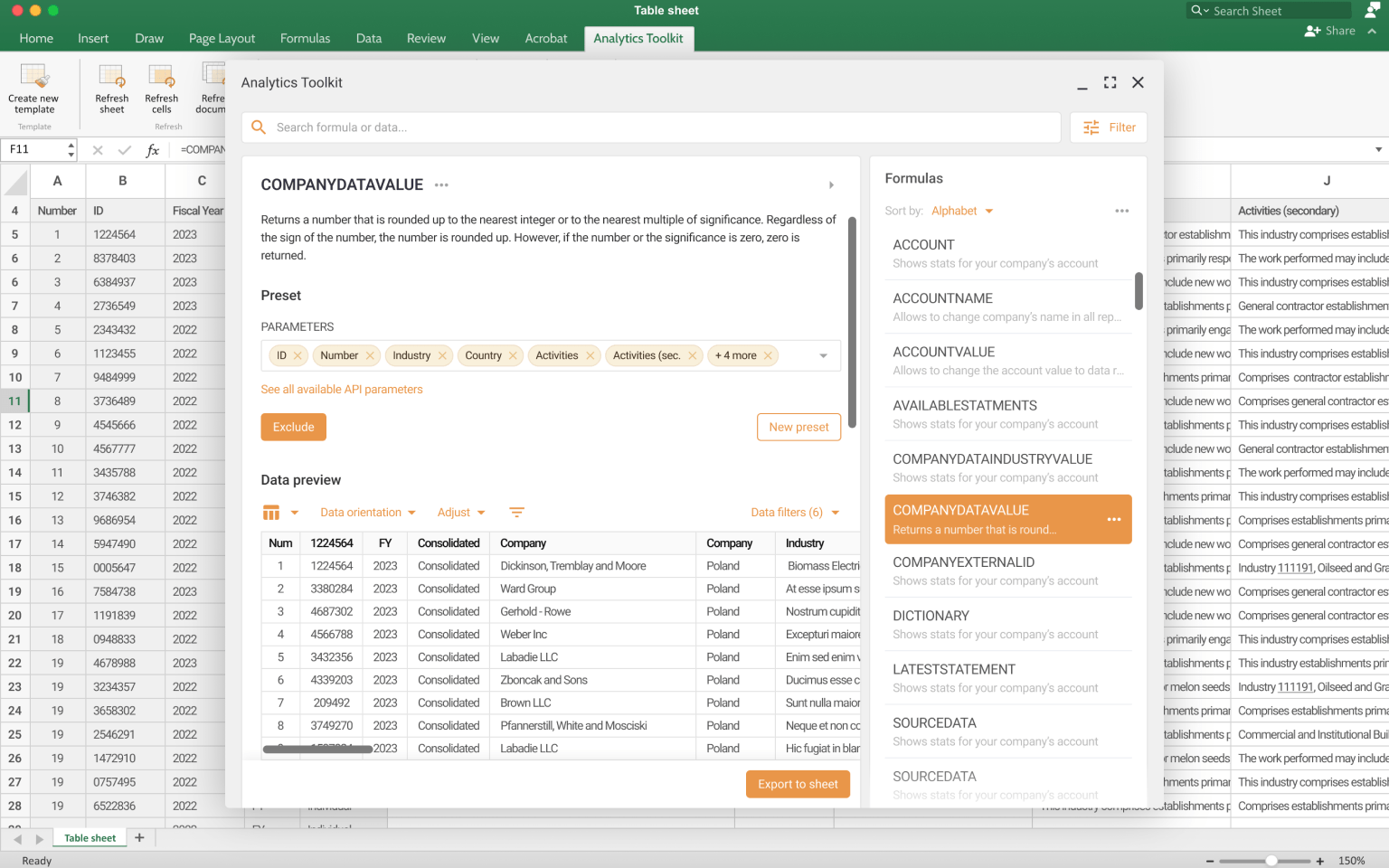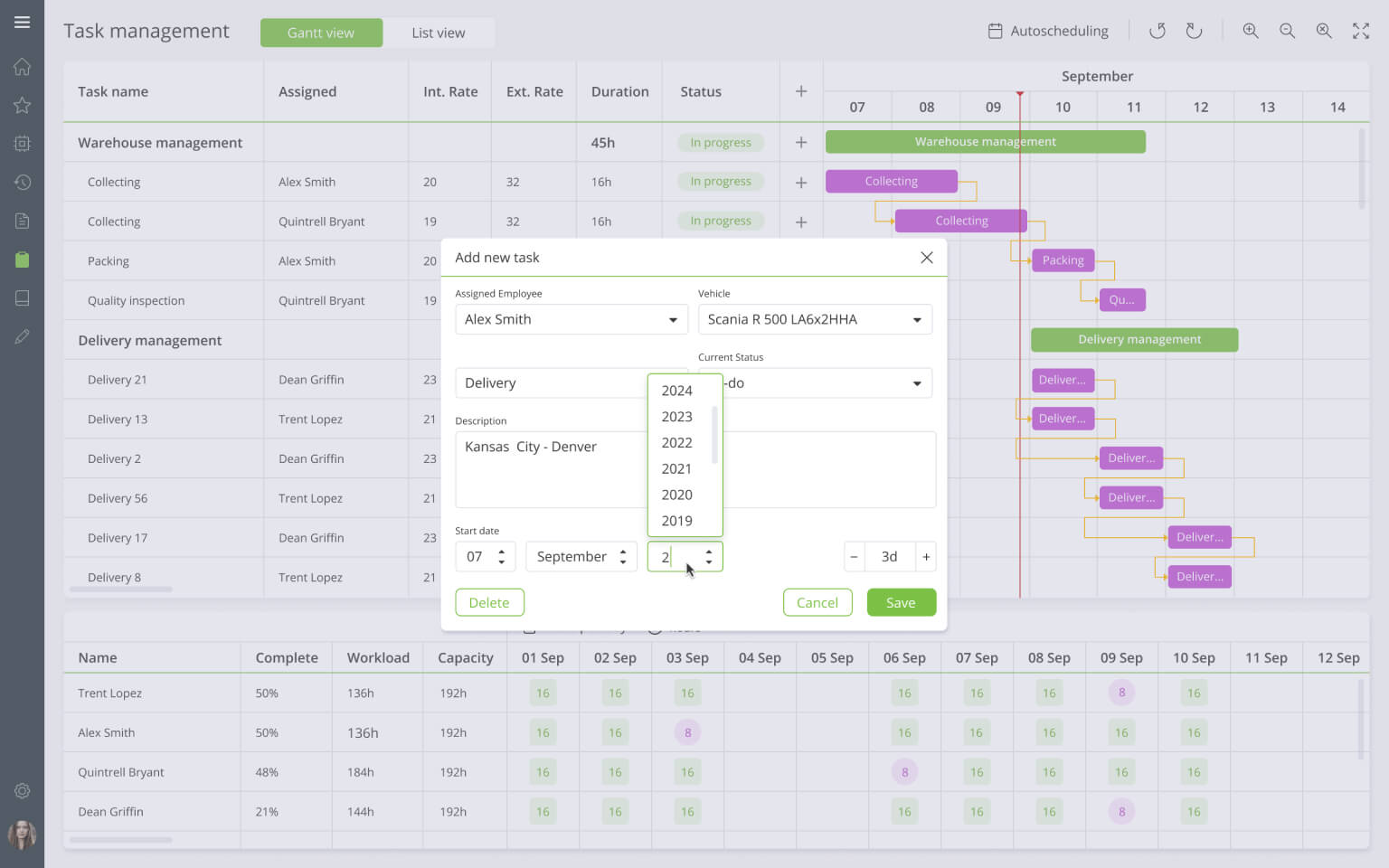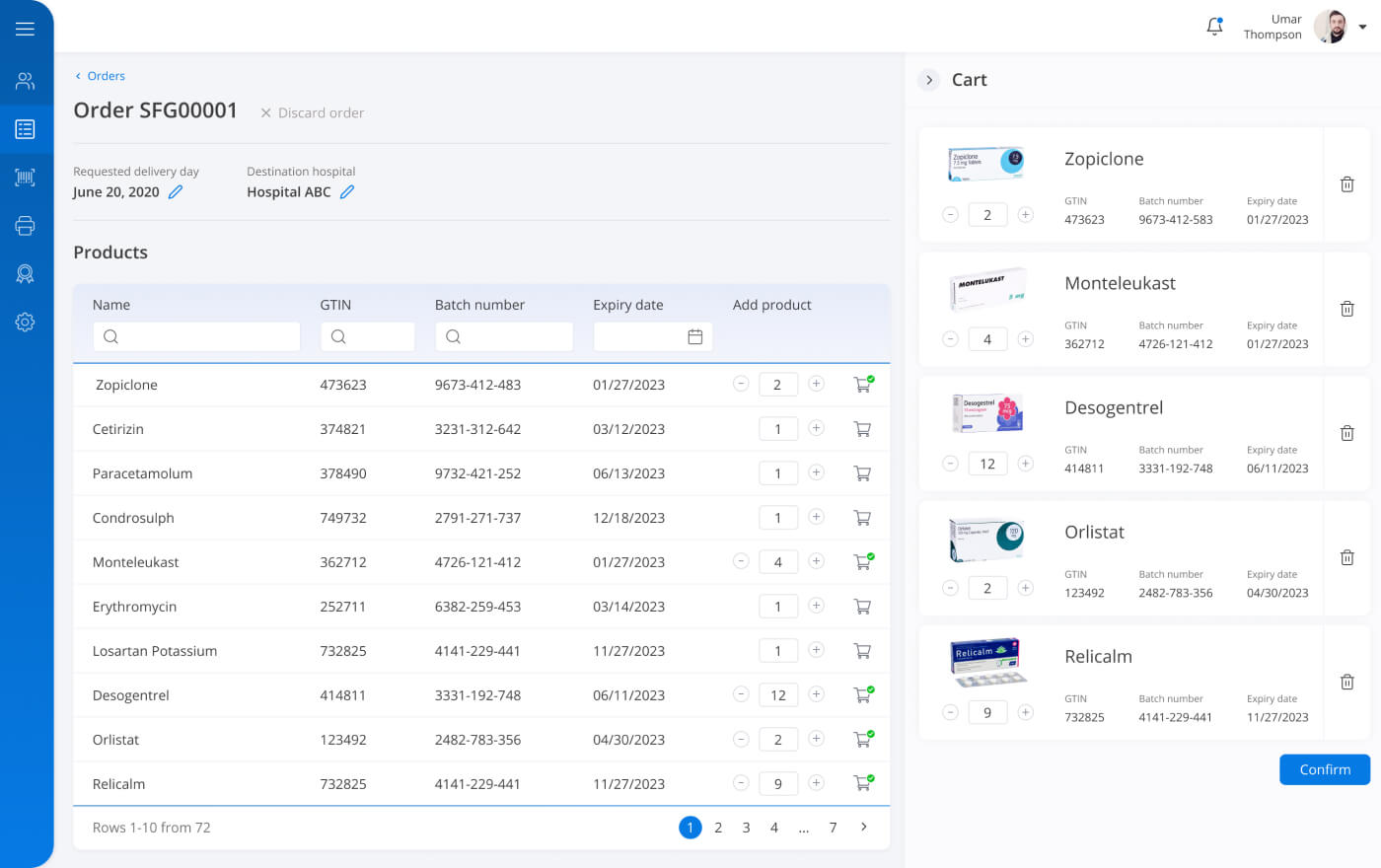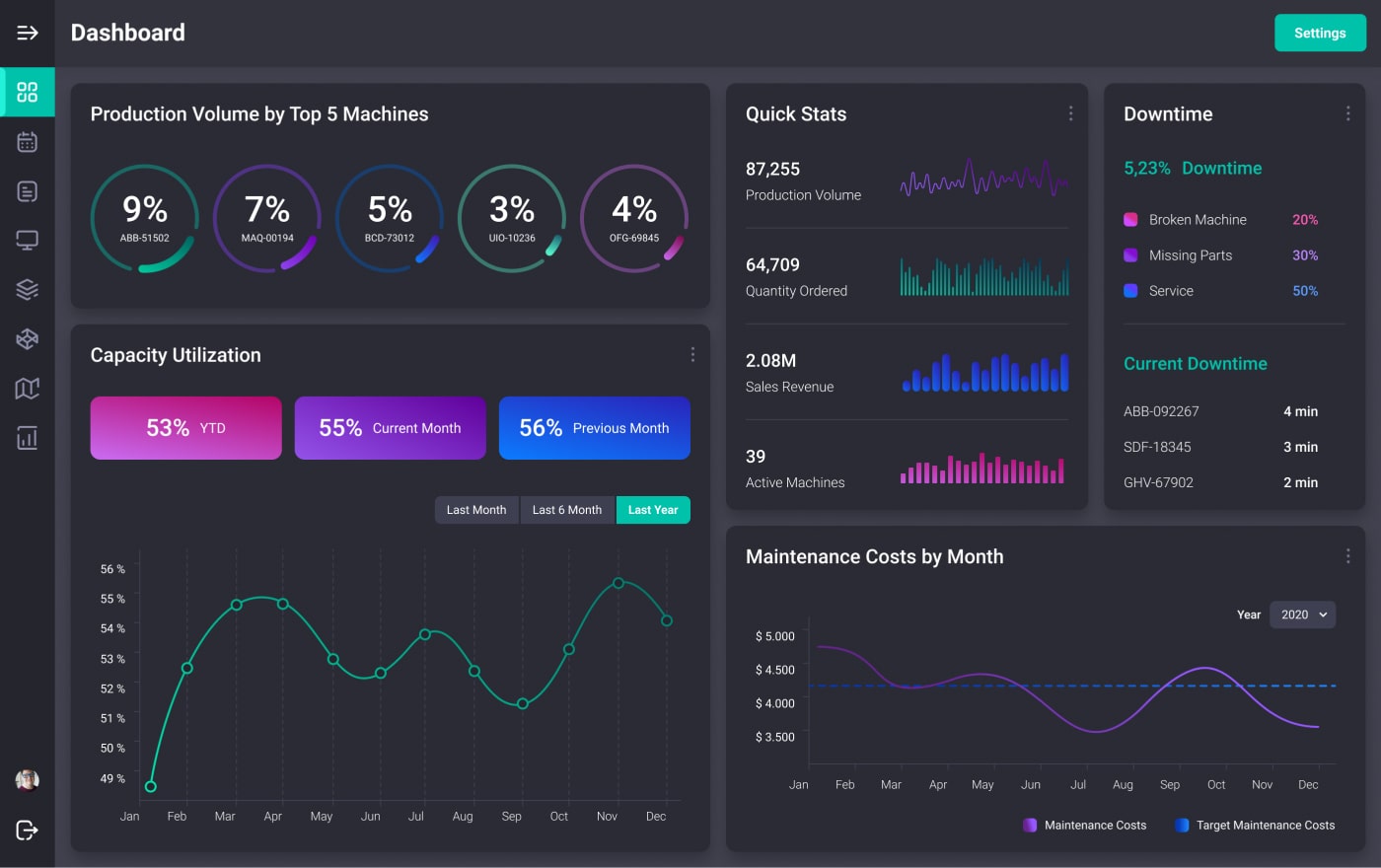
Gathering and properly using data helps a company not only to gain insights but also to improve decision-making, which results in a better outcome of the strategy a business follows. It is common for companies from various industries to use business intelligence tools, because they help to make sense of their data, find patterns in historical data, and predict company’s future actions. Business Intelligence (BI), Business Analytics (BA), Data Intelligence (DI), and Data Analytics (DA) are some of the approaches that are used by companies to improve their processes. The first two are well-known in different industries, but one should also understand the purpose of the other two. So, today, we want to take a closer look at the differences between Data Intelligence and Data Analytics.
Data Intelligence vs Data Analytics vs Business Intelligence vs Business Analytics
First of all, let’s get a clear idea that those are four different concepts. Some may consider them interchangeable, however there are vital differences in meaning and scope. Thus, for example, your company can use all of them. Understanding the special aspects of each term will help us to dive into more details about DI and DA. So, let’s define each approach and when one may follow them.
- Data Intelligence is the overarching concept of using data for gaining insights, creating value, and improving decision-making. The approach usually includes the collection of the data as well as its integration, literacy, governance, security, etc.
- Data Analytics is the technical process that refers to the data mining and data analysis aimed at discovering correlations and patterns. The concept can be used for descriptive analytics, diagnostic analytics, predictive analytics, and prescriptive analytics. In simple words, it shows what happened, why, what will happen, and what should happen.
- Business Intelligence is a subset of DI, which is basically how you apply data intelligence for business operations, performance, and outcomes. The process helps to analyze historical and current data, and usually uses business intelligence solutions, like dashboards, KPIs, reports, online analytical processing (OLAP), etc.
- Business Analytics, on the other hand, is a subset of DA. It is the way you apply data analytics for business issues and solutions. Various tools and techniques, such as data visualization software, predictive modeling, aggregation, and forecasting, are actively used at this stage. As a result, you can optimize your strategy and make informed decisions.
Read Also Business Intelligence vs. Business Analytics. A Thin Line Between Prediction and Description
Challenges of DI and DA
Now that we found out the hierarchy and the place that DI and DA occupy in the world of analytics, let’s look at the challenges that you may face when following these concepts.
Data Quality and Integration
When working with data from disparate sources, it is important to ensure that the data you gather and use is accurate, consistent, and meaningful. Therefore, businesses should have robust data management and data governance strategies.
Level of Expertise
In order to avoid having confusing data and unclear further actions, you need to be sure that your data scientists are able to properly read the data and have the skills to know how to use it. Usually, these specialists have knowledge in machine learning, programming, and more.
Data Visualization
It is always easier to comprehend the information visualized in charts, tables, and diagrams than reading a huge written analytical review. It’s tiring and not interesting, which can cause reluctance from your team members. Visualizing data, on the other hand, may encourage them to use data more.
Read Also Data Visualization Software: Making Visual Representation of Your Data Effective
Right Tools
Considering how vast today’s world of technology is, it can sometimes be difficult to choose the right tools that can help to deal with data storing, gathering, visualization, etc. Some of the most popular big data technologies are Hadoop, Spark, Kafka, NoSQL, and MongoDB. Some companies go for ready-made options, while others opt for the custom software development solutions. For example, here you can see an Excel add-in that helped our client to simplify the process of accessing business data via API.

Source: Excel Add-In With Access to Real-time Data via API
Data Culture
Not every employee may understand the importance of data, which can lead to miscommunication and incorrect analysis. Therefore, it is essential to build a healthy data culture in your company. Find the ways to encourage your team to use data and show how it drastically improves decision-making.
Read Also The Importance of Business Intelligence Solutions for Modern Business
Use Cases of DI and DA
Following data analytics and data intelligence approaches can be beneficial in any industry, because you will be able to improve your business processes and develop better strategies. Let’s look at what they can bring to your company.
Supply Chain
When a company lies in the Logistics and Supply Chain industry, it has to deal with the big data and be able to unravel it. One should know how to reduce loss and mitigate risks that are common for the industry. Having a self-automated management system greatly helps in this case. You will be able to check the details of deliveries, transportation, and tasks set for drivers and carriers.

Source: Integrated Scheduler Module for Efficient Task Management
Healthcare
Using healthcare systems with data management and visualization tools is a game-changer, because it becomes easier to deal with all the information you get about medical inventory, patients, prescriptions, and doctors. As a result, the data analysts in your company are able to make better decisions about pharmacy orders or, for example, warehouse management.

Source: Pharmacy Order Management System
Ecommerce
Besides offering a wide variety of goods, an ecommerce business should be able to gather customer feedback. Otherwise, how would you know if your customers are satisfied or not? Therefore, the system and practices you use should cover this need. Typical ecommerce platform gathers data on customers and creates suggestions and ads based on the goods they are interested in. This is a lot to handle, so it’s wise to automate the process in your system.
Read Also Marketplace Business Model vs Aggregator Business Model
Manufacturing
Manufacturing solutions should also be able to monitor, collect, and polish a huge amount of data. Are there any missing parts or broken machines? What is the production volume and how much will your company spend on maintenance costs? There is a lot of data to analyze, and following DI and DA approaches with the help of system solutions can increase your efficiency.

Source: Advanced ERP Software for Manufacturing Company
Conclusions
Gathering and using data is in human nature, because we need something to base our evolution on. Without having a clear idea of which actions lead to what consequences, we are unable to grow. Growing and managing your business is the same, which is why using DI and DA practices is what you should consider. Sorting out the data and visualizing with the help of data management tools and having experts that are able to work with this information is a ticket to success.
If you want to know how to develop a better system with various useful data tools, contact us, and our team will be able to find the best solution for your business.



























